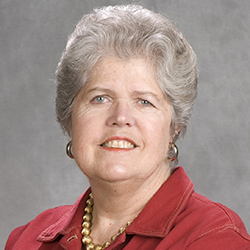According to an old saying, local government is closer to the people. That is, people can have more influence on local and state governments because they are smaller than the national government. Therefore, local and state governments are more democratic. Current events demonstrate that this adage is not true today, if it ever was.
Efforts by many state legislatures to dictate what can and cannot be taught in educational institutions at all levels, as well as local efforts to dictate what books public libraries can and cannot lend freely, are Exhibit A here. One parent in Florida, which has banned “woke” education in the state, got an elementary school to stop showing a 1998 Disney movie about Ruby Bridges, a black first-grader in New Orleans who integrated a public school in 1960 amidst jeering, spitting, and threats, and who was escorted by federal marshals. This parent feared that the film might teach that white people hate black people, although the film portrays some measure of acceptance at the end. As Charles Blow wrote in a March New York Times article, what a first grader endured was apparently too much for second graders to learn about. And what if minority parents start objecting to the portrayal of different aspects of American history?
Wrote Christina Paxson, the president of Brown University (April NYT), “The ironic truth is that laws that prohibit the teaching of ‘divisive concepts’ are themselves attempting to indoctrinate students into seeing the world through one lens.” Although she focused on higher education, this point applies to all levels of education.
As Jamelle Bouie wrote (May NYT), state and local oppression is nothing new. The original interpretation of the Constitution was that the guarantees of the Bill of Rights limited only national authority, not that of the states, which could freely overturn Reconstruction and institute Jim Crow. Bouie’s point is that the 14th Amendment was meant finally to guarantee political and civil rights against state governments. The second sentence reads, “No State shall make or enforce any law which shall abridge the privileges or immunities of citizens of the United States; nor shall any State deprive any person of life, liberty, or property, without due process of law; nor deny to any person within its jurisdiction the equal protection of the laws.” Strides have been made in enforcing rights as attributes of national citizenship, but conservatives and reactionaries want to reverse these developments and return the definition of these rights to the states, whether concerning voting, expressions of gender and sexuality, or abortion — and even the right to travel to obtain an abortion. As Bouie writes, “The plan … is to shrink and degrade the very notion of national citizenship and to leave us, once again, at the total mercy of the states.”
Ironically, many Republicans and conservatives who rail against “big government” embrace big government themselves if they can direct it. They want to cut back nationally on financial and nutrition assistance to the vulnerable. Conservative states want to limit or ban abortion, regulate sexuality and gender expression, and restrict gender-affirming medical care. Bouie (April NYT) terms this intrusive government. “You could say that there is limited government in those conservative states, so long as you live the way Republicans want you to live.” This is not small government.


Recent Comments